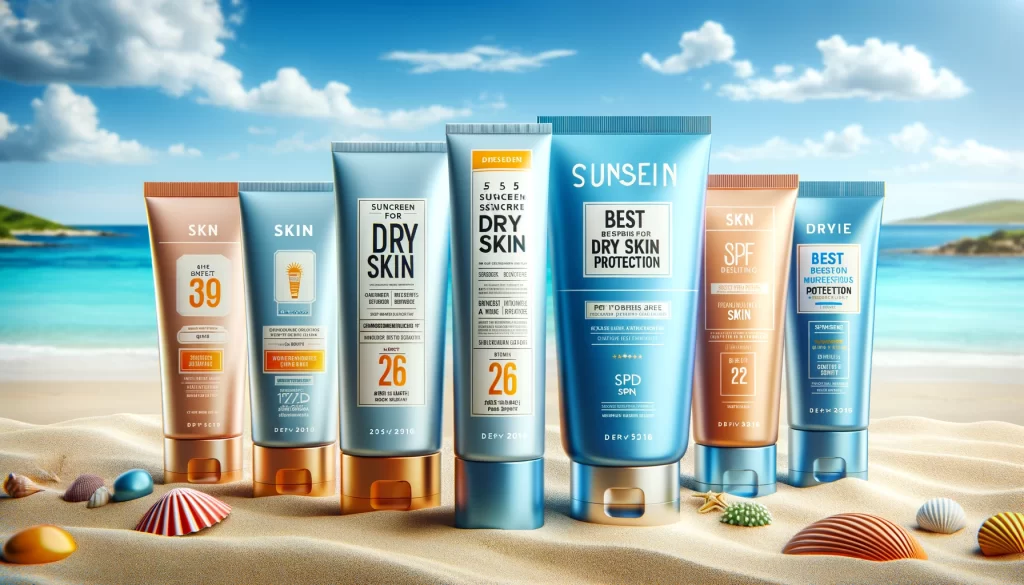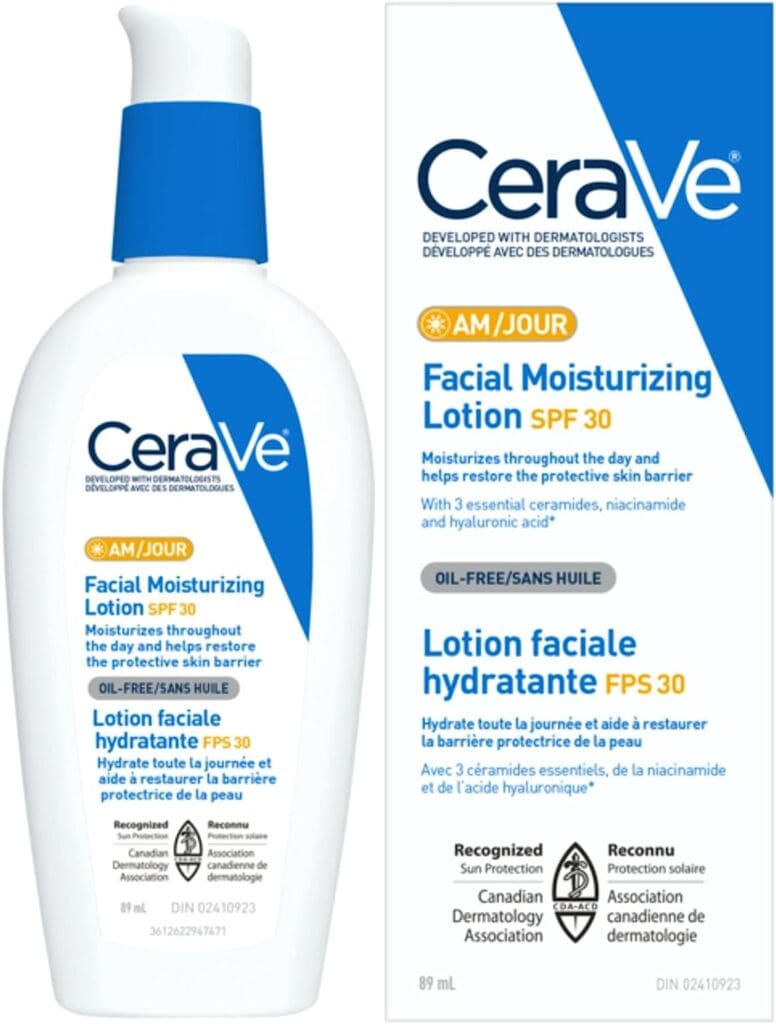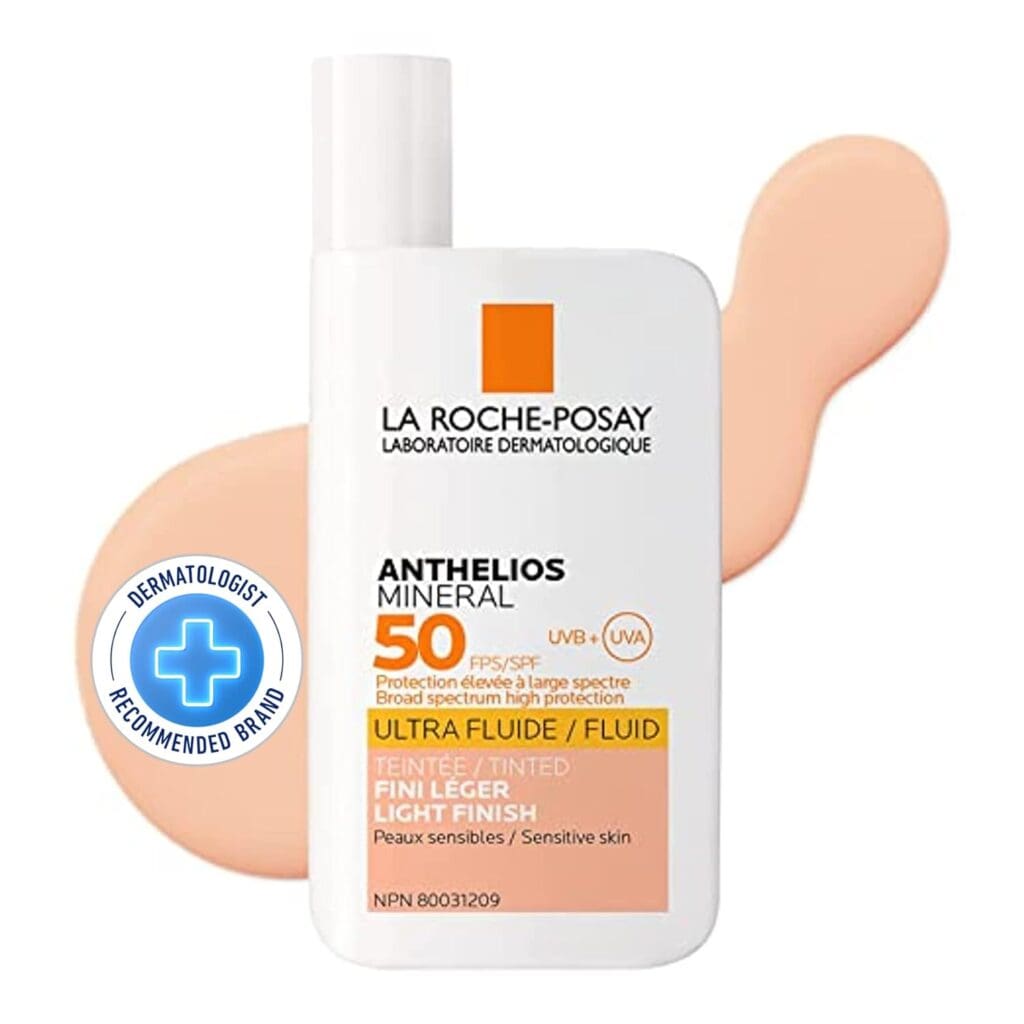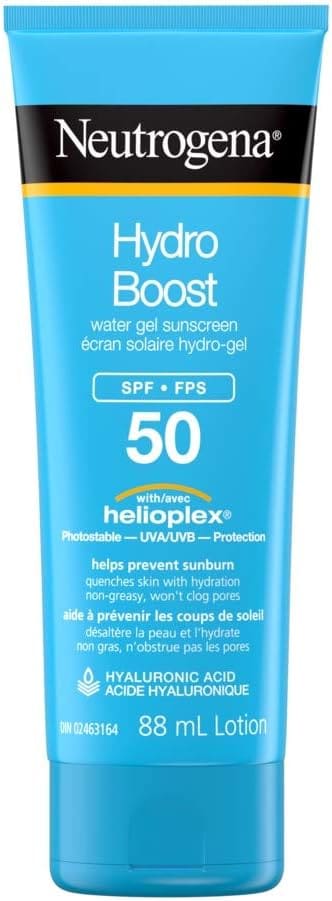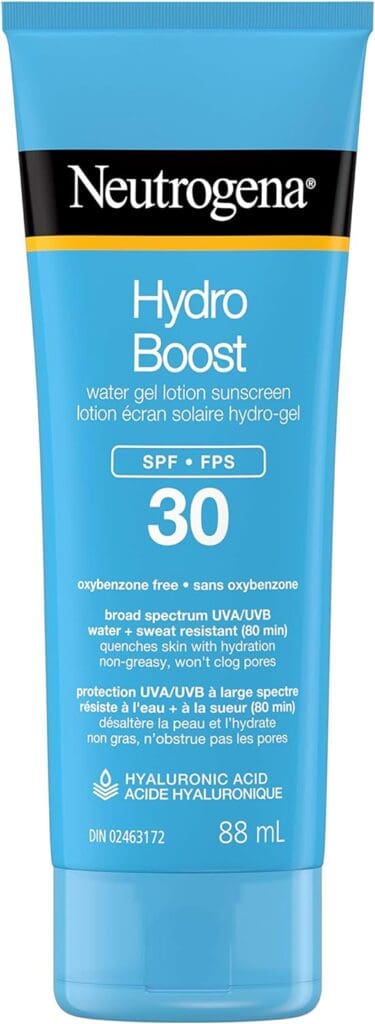What is Dry Skin?
Understanding dry skin is essential before diving into the best sunscreen for dry skin. Dry skin lacks moisture due to factors like cold weather, low humidity, sun exposure, genetics, and hormonal imbalances. It manifests as flakiness, roughness, tightness, and itching. Protecting dry skin from the sun with a suitable sunscreen is crucial to prevent further damage and maintain healthy skin.
1. Look for Sunscreens with Moisturizing Ingredients
When selecting the best sunscreen for dry skin, prioritize products with moisturizing ingredients like hyaluronic acid, glycerin, aloe vera, and ceramides. These ingredients hydrate and nourish dry skin while offering UV protection. Avoid sunscreens with alcohol or fragrances that can dry out your skin further.
2. Opt for Physical Sunscreens
Physical sunscreens containing zinc oxide or titanium dioxide are ideal for dry skin. They sit on the skin’s surface, creating a barrier against the sun’s rays without penetrating the skin, reducing irritation and dryness. These sunscreens often provide more moisture than chemical options.
3. Consider Tinted Sunscreens
Tinted sunscreens offer sun protection and coverage, suitable for dry skin. They come in various shades to match different skin tones, providing a natural, dewy finish. Look for broad-spectrum protection and moisturizing ingredients in a lightweight formula.
4. Choose Sunscreens with Antioxidant Protection
Antioxidants like vitamin E, vitamin C, and green tea extract in sunscreens help prevent premature aging and damage from free radicals. These ingredients enhance UV protection and protect the skin from further harm.
5. Don’t Forget to Reapply
Reapply sunscreen every two hours or as directed, especially when outdoors or in water. Consistent reapplication is essential for effective sun protection and to prevent sun damage.
The Benefits of Sunscreen for Dry Skin
Using the best sunscreen for dry skin offers numerous benefits:
- UV Protection: Sunscreen shields dry skin from damaging UV rays, crucial for conditions like eczema, psoriasis, and rosacea.
- Prevents Premature Aging: Sun damage can cause fine lines, wrinkles, and sagging. Broad-spectrum sunscreens prevent these signs of aging.
- Reduces Dark Spots: Sunscreens prevent hyperpigmentation and dark spots caused by UV rays.
- Hydration: Formulas with hyaluronic acid, aloe, and glycerin keep the skin hydrated and supple.
The 5 Best Sunscreens for Dry Skin
1. CeraVe Hydrating Sunscreen SPF 30
CeraVe Hydrating Sunscreen SPF 30 is a top choice for those seeking both sun protection and hydration. This sunscreen offers broad-spectrum protection against UVA and UVB rays, helping to prevent sunburn and long-term skin damage. Formulated with essential ceramides, it helps restore and maintain the skin’s natural barrier, while hyaluronic acid provides intense hydration, keeping the skin plump and moisturized. Additionally, niacinamide is included to soothe the skin and improve its overall texture. The lightweight, non-greasy formula absorbs quickly, making it ideal for daily use under makeup or alone.
Pros and Cons
Pros:
- Contains ceramides to restore and maintain the skin barrier
- Hyaluronic acid for deep hydration
- Niacinamide to soothe and improve skin texture
- Lightweight, non-greasy formula
- Broad-spectrum SPF 30 protection
- Suitable for dry and sensitive skin
- Fragrance-free and non-comedogenic
- Provides a smooth base for makeup application
Cons:
- May leave a white cast on darker skin tones
- SPF 30 may not be sufficient for extended outdoor activities; higher SPF options might be needed
- Not water-resistant, requiring more frequent reapplication during water activities
- Some users may find the texture too thick for oily skin
- Can be slightly pricier than other drugstore sunscreens
2. EltaMD UV Clear Facial Sunscreen SPF 46
EltaMD UV Clear Facial Sunscreen SPF 46 is a highly recommended product for individuals with sensitive and acne-prone skin. Recognized as one of the best sunscreens for dry skin, this dermatologist-approved sunscreen contains zinc oxide, a mineral filter that offers broad-spectrum UVA and UVB protection, and niacinamide, which helps to soothe and calm the skin. Its lightweight, oil-free formula ensures a matte finish without clogging pores, making it ideal for daily use. This sunscreen not only protects your skin from the sun but also addresses common skin concerns like dark spots and redness, making it a versatile addition to your skincare routine.
Pros and Cons
Pros:
- Suitable for sensitive and acne-prone skin
- Lightweight, oil-free formula
- Provides broad-spectrum SPF 46 protection
- Contains zinc oxide for mineral-based sun protection
- Includes niacinamide to reduce redness and dark spots
- Matte finish, ideal for everyday use
- Non-comedogenic, won’t clog pores
- Fragrance-free and paraben-free
- Helps improve skin texture and tone over time
Cons:
- May not control oil effectively for very oily skin types
- More expensive compared to other sunscreens
- Not water-resistant, requiring frequent reapplication during water activities
- Some users may experience a slight white cast on darker skin tones
- Limited availability in some regions, may need to purchase online
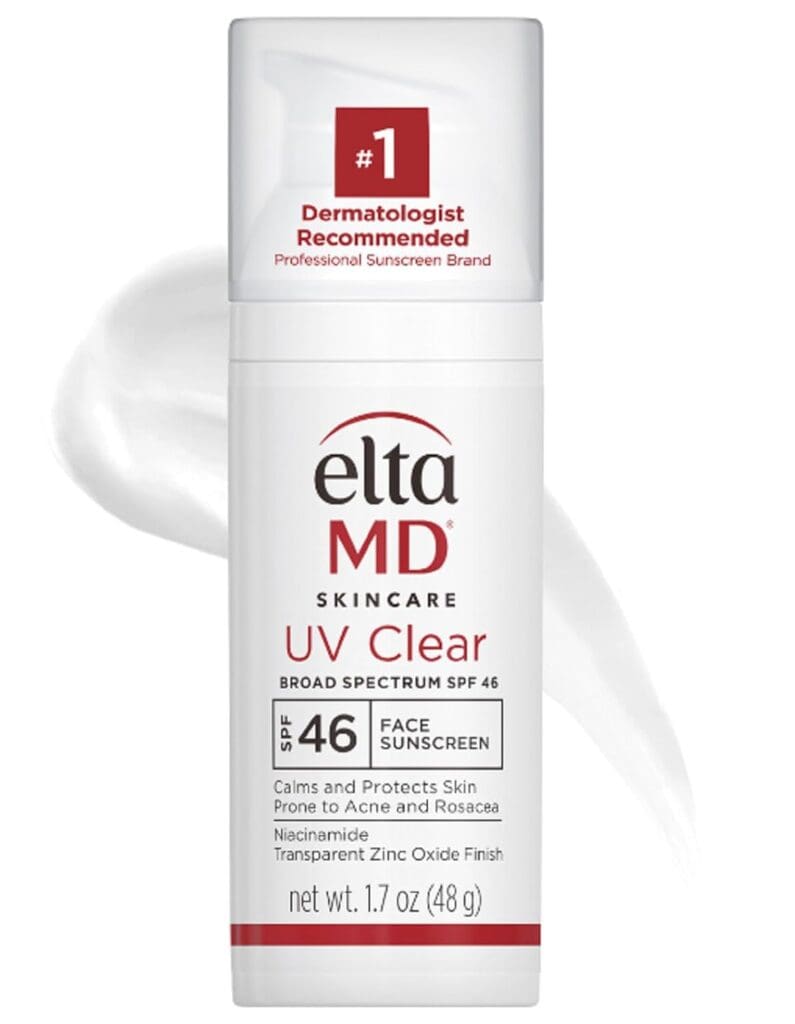
3. La Roche-Posay Anthelios Mineral Sunscreen SPF 50
La Roche-Posay Anthelios Mineral Sunscreen SPF 50 is a highly recommended option for those with dry and sensitive skin. This mineral-based sunscreen features zinc oxide, which provides broad-spectrum UVA and UVB protection. Its lightweight, non-greasy formula absorbs quickly into the skin, making it perfect for daily use. Additionally, it is free from parabens, fragrance, and harsh chemicals, ensuring it is gentle on sensitive skin while effectively protecting against sun damage.
Pros and Cons
Pros:
- Ideal for dry, sensitive skin
- Broad-spectrum SPF 50 protection
- Lightweight, non-greasy finish
- Absorbs quickly into the skin
- Contains zinc oxide, a natural mineral filter
- Free from parabens, fragrance, and harsh chemicals
- Suitable for daily use
- Water-resistant for up to 40 minutes
- Provides antioxidant protection to combat free radicals
Cons:
- May leave a white cast, especially on darker skin tones
- Higher price point compared to other sunscreens
- May require thorough blending to avoid residue
- Not suitable for those who prefer chemical sunscreens
- Some users may find the texture slightly thick for everyday wear
4. Neutrogena Hydro Boost Water Gel Lotion SPF 50
Neutrogena Hydro Boost Water Gel Lotion SPF 50
Neutrogena Hydro Boost Water Gel Lotion SPF 50 is an excellent choice for dry skin users. This innovative sunscreen, often considered the best sunscreen for dry skin, combines broad-spectrum UVA/UVB protection with the hydrating power of a water gel, making it perfect for everyday use. Its lightweight, non-greasy formula absorbs quickly and provides long-lasting hydration, leaving your skin soft and smooth. Ideal for all skin types, this sunscreen is particularly beneficial for dry skin, as it helps maintain moisture balance while protecting against the sun’s harmful rays.
Pros and Cons
Pros:
- Lightweight, non-greasy formula
- Provides intense hydration
- Absorbs quickly into the skin
- Suitable for daily use
- Broad-spectrum UVA/UVB protection
- Contains hyaluronic acid for added moisture
- Leaves skin feeling soft and smooth
- Does not leave a white residue
Cons:
- It may not be suitable for oily skin types due to its hydrating properties
- Slightly more expensive compared to other sunscreens
- Not water-resistant, requiring more frequent reapplication during water activities
- May not provide enough moisture for extremely dry skin
- Some users may experience breakouts if they have acne-prone skin
5. Neutrogena Hydro Boost Gel Moisturizing Sunscreen SPF 30
Neutrogena Hydro Boost Gel Moisturizing Sunscreen SPF 30 contains hyaluronic acid for hydration, offering a lightweight formula that absorbs quickly. It’s in the best category for sunscreen for dry skin because it delivers advanced sun protection and intense hydration, leaving your skin feeling refreshed and non-greasy. Perfect for daily use, it helps defend against harmful UVA and UVB rays while maintaining moisture. Enjoy a lightweight, breathable shield that keeps your skin healthy and protected under the sun.
Pros and Cons
Pros:
- Hydrating, lightweight formula
- Quick absorption
- Non-greasy finish
- Contains hyaluronic acid for added moisture
- Suitable for daily use
- Provides broad-spectrum UVA and UVB protection
- Does not leave a white residue
Cons:
- Lower SPF compared to other options
- May clog pores in acne-prone skin
- Not water-resistant, requiring more frequent reapplication during water activities
- Slightly higher price point than some other drugstore options
- May not provide enough moisture for extremely dry skin
Best Sunscreens for Dry Skin Conclusion
Choosing the best sunscreen for dry skin ensures protection against UV rays and maintains skin hydration. Look for sunscreens with moisturizing ingredients, physical blockers, and antioxidant protection. Reapply regularly to keep your skin healthy and protected. Prioritize sun protection to prevent premature aging and dark spots, and enjoy a healthy, glowing complexion.
